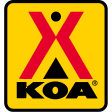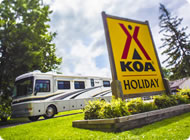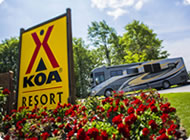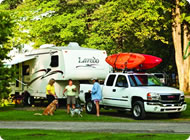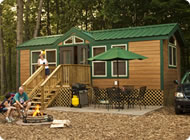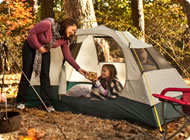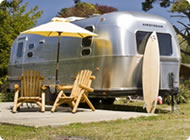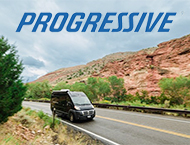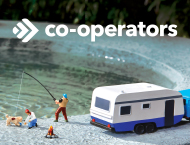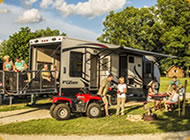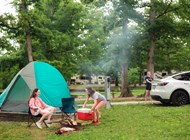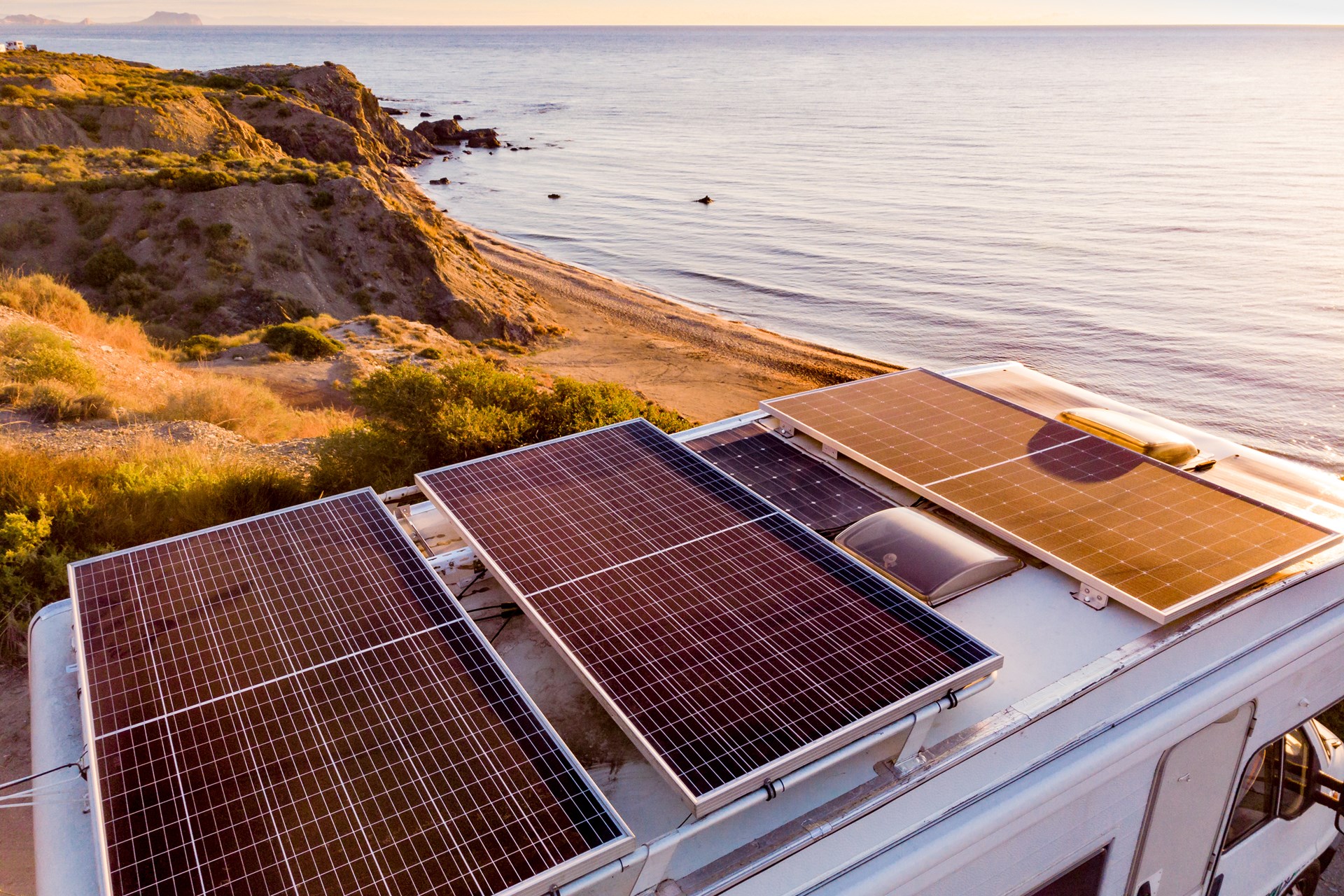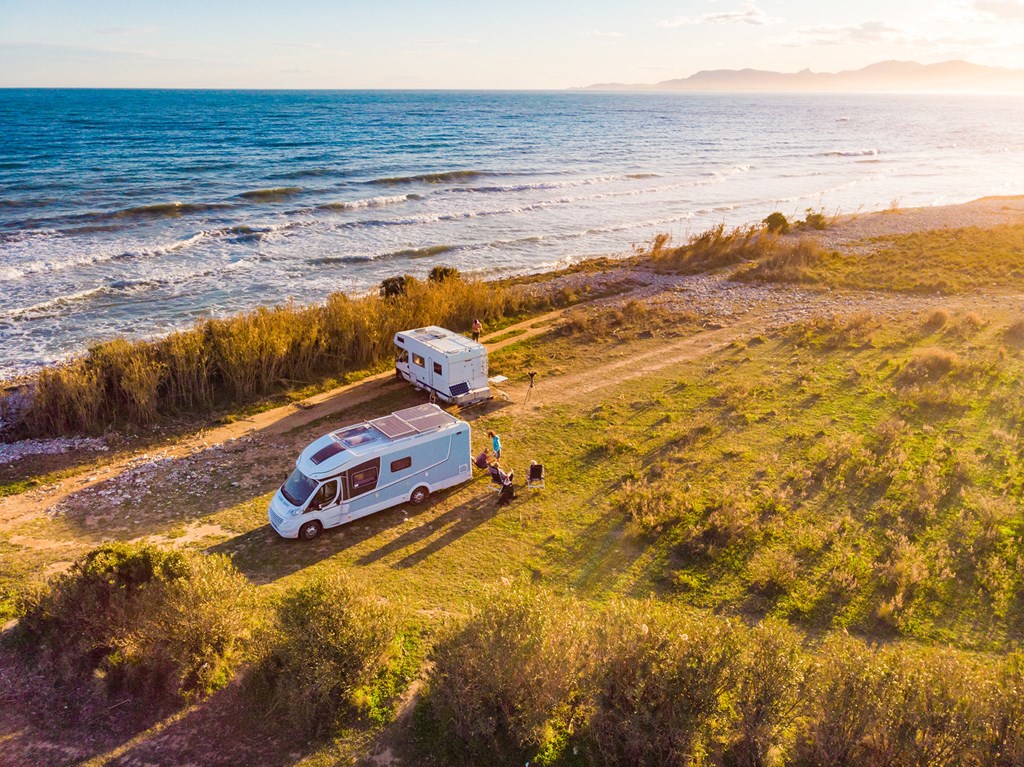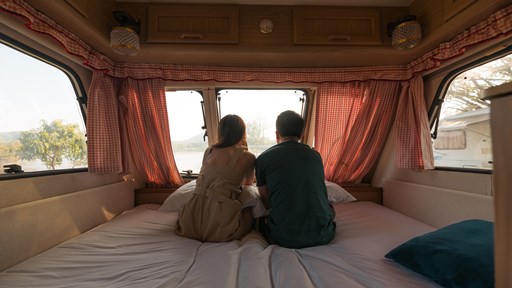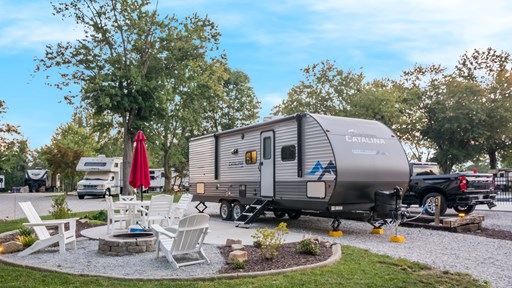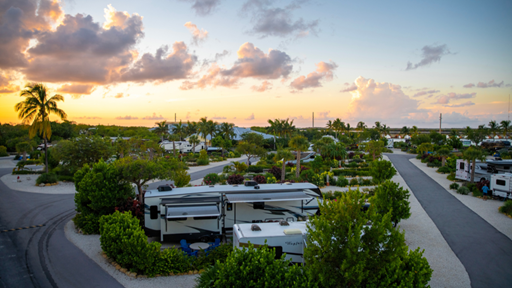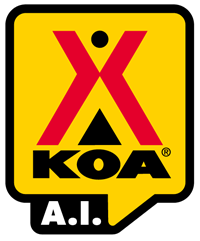Campers can take advantage of renewable energy by investing in RV solar panels. They convert sunlight into power by charging batteries via a battery charge controller. Direct current (DC) energy is stored in the batteries, and an inverter converts the DC energy to alternating current (AC) energy.
Solar panels can help you be more eco-friendly about your power consumption or enable you to try off-grid camping or boondocking. They are available for every type of RV to power your major appliances, charge your electronics and more. This guide to the best RV solar panels will help you find the right option for your camping needs, so you can stay off the grid longer.
Types of Solar Panels for RVs
RV solar panels are made with silicon crystal that captures solar energy. The types of panels include:
- Monocrystalline: Monocrystalline silicon panels have a single crystal panel. This design makes it easier for the electricity to move through the unbroken crystal, providing the highest efficiency in direct sunlight. Monocrystalline solar panels are best for RVs with limited roof space.
- Polycrystalline: Polycrystalline silicon panels are made with several crystal fragments. Some efficiency can be lost with this type of panel.
While there are several options for solar panels, monocrystalline is usually the ideal option for RVs due to their efficiency, longevity and durability. Polycrystalline silicon panels can’t provide the power needed for all of your RV systems, but they can provide additional power as a portable unit.
Key Solar Panel Considerations
Features to consider when deciding which RV solar panel is right for you include:
- Efficiency ratings: A solar panel’s efficiency rating estimates its capacity to convert sunlight into electricity in ideal conditions. Look for efficiency ratings of 23% or higher.
- Size and weight: Your portable solar panel’s weight matters since you will be moving it around during setup and packing. Make sure the panel’s weight is comfortable for you to handle. In general, solar panels with higher wattage ratings weigh more.
- Durability: Rigid solar panels are best for flat-topped RVs, and RVs with curved or uneven rooftops need solar panels with a flexible structure that can conform to the surface. Rigid panels are more durable than portable options with strong frames and protective glass.
- Weather resistance: Solar panels’ weather resistance varies by model. In general, rigid solar panels produce more energy and are wind- and waterproof to withstand any weather conditions.
- Temperature coefficient: Rigid solar panels are best for high-heat conditions because they are durable and can withstand temperature extremes and fluctuations.
Batteries and Accessories for Solar Panels for RVs
Before installing a solar panel, consider your whole system. You may need to invest in some upgrades, especially if you want to use solar power to run systems that need a lot of power, like your air conditioner and appliances.
Some other accessories you may need for your solar panel include:
- Charge controller: The battery charge controller maintains battery life by providing a current flow from the solar panels when battery power is low. When the batteries are charged, the controller limits the current flow to prevent overcharging.
- Batteries: Your solar panel may need more power than your RV battery can provide. Determine your battery needs first, then size the solar panel based on replenishing the batteries.
- Inverter: The inverter converts the DC energy from the solar panel battery into AC energy, allowing your RV systems to use the power.
Some RVs come with a solar prep package that includes some of these accessories and the wiring needed to set up your solar panel.
Top RV Solar Panel Brands
Knowing what solar panels to buy for your RV can be challenging with all the options available on the market. If your RV came with a solar prep package, it may be set up for a specific panel brand based on the type of connections. The following are the best RV solar panel manufacturers based on efficiency, cost-effectiveness and other standards:
- Renogy: This brand offers several rigid and flexible solar panels for RVs. Renogy solar panels are fairly priced and designed for durability in all weather.
- Goal Zero: Goal Zero solar panels include several mountable and portable options for RVs. Wattage options range from 5 watts to over 200 watts to accommodate your power needs.
- RICH SOLAR: RICH SOLAR has a vast selection of RV solar panels designed for efficiency to maximize power output and durability to last during traveling. The flexible, portable and rigid panels range between 50 and 410 watts.
Solar Panel Installation Options
Solar panels need to face direct sunlight for as long as possible. How and where you position the panels depends on the installation method. There are two solar panel setup options — use one type or a mix of both based on your power needs:
- Portable: A portable RV solar panel plugs into your RV’s solar plug and attaches to the roof temporarily or is a separate unit placed on the ground. Since you can set up a portable panel anywhere, you can place the panel in direct sunlight for the best efficiency. These lightweight panels can be folded for easy transport and carrying. This type of solar panel is best if you don’t need much power or want to purchase the most affordable solar panel.
- Permanent: Permanent solar panels are attached to the unused space on your roof and collect sunlight while you are driving and parked at the site. For parking, permanent solar panels work best when you set up your RV in a place that maximizes sun exposure and reduces shadows on the panels from RV roof accessories. This option is ideal if you want maximum power for charging devices and powering appliances.
Monocrystalline solar panels are permanently fixed to your RV’s roof laying flat or tilted on mounting brackets. You can install a permanent solar RV panel yourself or have an RV dealer or other professional do the work. Flexible solar panels are mounted to curved RV surfaces with adhesive tapes.
Cost-Benefit Analysis of RV Solar Panels
The average cost of a solar panel varies based on the type. Monocrystalline solar panels have a higher initial cost, and polycrystalline panels are a low-cost option. However, monocrystalline is more efficient than polycrystalline, so the higher price may be worth it if you value efficiency.
The exact cost per watt varies based on the type of setup you choose, with some solar panel types offering a better value per solar watt than others. Regardless of the initial cost of your RV solar panel, you will gain your money back and more over time. After buying your panel, using it to collect sustainable energy is free. Since RV solar panels have few maintenance needs, you will likely have few to no repair expenses.
You will likely spend more if you have a professional do the installation rather than doing it yourself. However, if you don’t have the tools or knowledge for a DIY installation, letting someone else do it may be best to make sure your solar panel is securely attached to the roof without creating a leak and works efficiently.
Frequently Asked Questions About RV Solar Panels
Here are some common questions about solar panels for RVs.
How Many Solar Panels Can I Put on My RV?
The number of solar panels you need to run your RV varies based on your power needs. Look up the wattage — watt hours — of the devices you want to run via solar power and watt use for anything that uses electricity, like the microwave, TV and refrigerator. The watt use determines how many watts of solar you need. A 100-watt solar panel collects around 350 watts per day, which you can use to charge your phone and run small appliances.
Can I Use Solar Panels With My RV in All Weather?
RV solar panels are the most efficient when the sun is out and cloud coverage is minimal. They work effectively for about 5 hours per day. During adverse weather like rain, permanent solar panels are designed to withstand the moisture. However, portable solar panels should be put away during heavy rain. These units can withstand a light shower but are not meant to resist heavy moisture.
Do I Need a Charge Controller With My RV Solar Panels?
Regardless of the type and number of solar panels your RV has, a charge controller is necessary for your setup. These units prevent the solar panels from overcharging the batteries, helping the batteries last longer.
How Do You Clean RV Solar Panels?
Cleaning your RV solar panels helps them maintain their efficiency. You will need these products:
- Water
- Mild detergent
- Soft brush
- Squeegee with a plastic blade
- Nonabrasive cloth
Follow these steps to clean your RV solar panels:
- Mix the detergent in the water.
- Use the brush to clean dirt and debris off the panel.
- Apply the detergent-water mix on the panel and use the brush and squeegee to clean.
- Use clean water to rinse the detergent off the panel.
- Dry the panels with the cloth.
You can also check the solar panel manufacturer’s cleaning guidelines for their recommendations.
Why Trust Us for Information on the Best Solar Panels for RVing?
Kampgrounds of America is a trusted source for RV solar panels due to their extensive knowledge about this camping power solution. The KOA team has meticulously researched and studied what makes a good solar panel, considering the different panel setups and other options. This means KOA knows a lot about these products and can offer recommendations for which solar panels you should get for your RV.
KOA is also the trusted expert for other camping gear recommendations. The KOA Blog has posts with recommendations for:
- Best sleeping bags for cold weather.
- All-season camping gear.
- Best RV extension cords.
- Cooking gear for your RV kitchen.
- New RV bed mattresses.
Stay at Kampgrounds of America During Your RV Travels
RV solar panels are a worthwhile investment for any camper. Solar panels for RVs allow you to take advantage of sustainable power sources, reduce your reliance on the grid and save money on electricity.
Once you have upgraded your RV with solar panels, stay at KOA, the world’s largest collection of private campgrounds, with over 500 campgrounds across North America. Many KOA Campgrounds are close to cities, national parks and other exciting locations. Check out the RV Sites, and reserve a site today!
About the Author: Kampgrounds of America
Kampgrounds of America is the largest system of open-to-the-public campgrounds in the world, with over 500 locations across the United States and Canada. Founded in Billings, MT in 1962, KOA’s family of campground brands – KOA Journey, KOA Holiday and KOA Resort – today serve more than a million camping families each year. KOA is dedicated to “connecting people to the outdoors and each other” by providing people with a variety of camping experiences and the information they need to make the most of their camping trip. Read more of their camping and travel resources by visiting KOA.com/blog.



